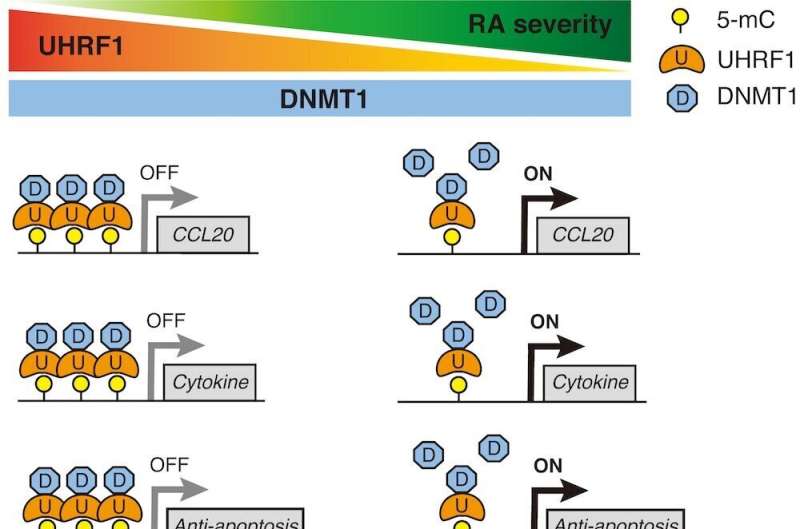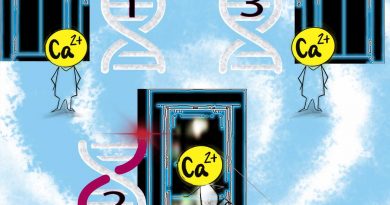UHRF1 suppresses pathogeneses in rheumatoid arthritis

Rheumatoid arthritis (RA) is characterized by chronic inflammation of synovium, eventually leading to joint destruction. Epigenetic alteration (the mechanism of gene expression regulation without DNA sequence changes), such as low levels of DNA methylation, is one of the factors which worsens the RA state. However the mechanism by which the alterations occur remains largely unknown.
In the present Journal of Clinical Investigation study, we identified an epigenetic regulator UHRF1 that was remarkably up-regulated in synovial fibroblasts (SF) from arthritis model mice and RA patients. Previous study showed that UHRF1 is a key player in the maintenance of DNA methylation, although the function for RA is unknown. To understand UHRF1 function for arthritis, we generated mice with SF-specific UHRF1 conditional knockout (cKO) and experimental arthritis was induced. cKO mice exhibited more severe arthritic phenotypes than the littermate control.
Next, to reveal UHRF1 function in SF, RNA-seq and MBD-seq were performed using SF obtained from the control and cKO mice. Integrative genome-wide analyses of the transcriptome and methylome showed that expression of several cytokines was up-regulated in UHRF1-deficient SF accompanied by reduced DNA methylation signatures. Also, UHRF1 expression in synovium was negatively correlated with several pathogeneses in RA patients. These data suggested that RA pathogenesis is exacerbated when UHRF1 levels are low in SF.
Finally, we assessed whether UHRF1 stabilization contributes to improvement of arthritis pathogenesis. Ryuvidine, which was identified as a candidate chemical compound to the stabilize UHRF1 protein, was administrated in arthritis model mice. The results showed that arthritis pathogenesis was ameliorated by treatment with Ryuvidine. Also, the development of organoids derived from RA-SF was suppressed by Ryuvidine.
Source: Read Full Article



